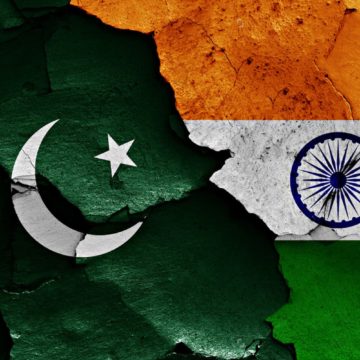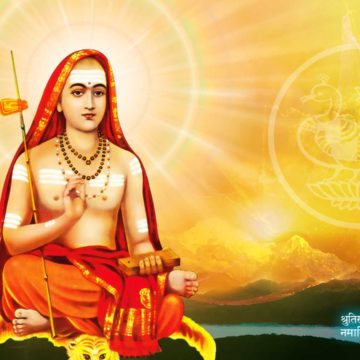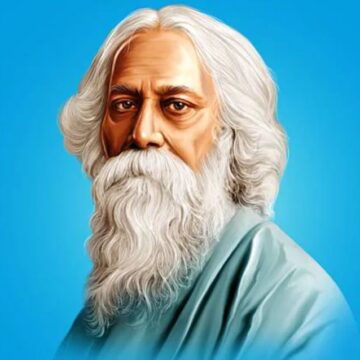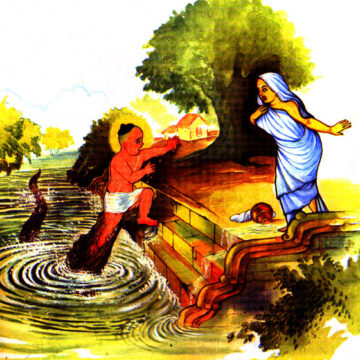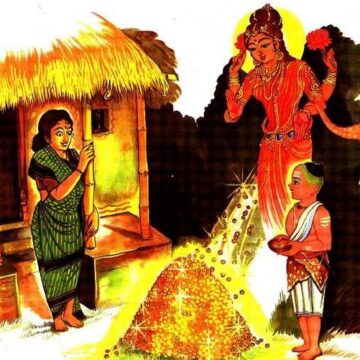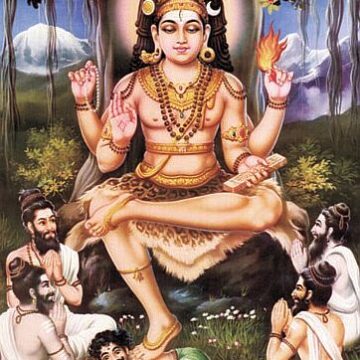In the fourth part of the 5-part series on Indian philosophical systems, Dr. Pingali Gopal discusses the prominent Advaitic view on the notions of the Self and the non-Self. We shall also see the notion of cause and effect in the material world and how the Self interacts with the material world. It is a promise of Indian Darshanas that proper knowledge confers liberation to the striving individual.
Category: ESSAY
Philosophical Systems Of India – A Primer – Part 3
In the third part of the 5-part series on Indian philosophical systems, Dr. Pingali Gopal discusses the most important differing point of Indian philosophies from Western philosophy: Perception as a valid means of obtaining knowledge regarding the objects of the senses. In Western philosophy, perception is unreliable, and in the Indian tradition, perception is the eldest of the proofs needed to understand reality.
Unlike the western notions of an unknowable noumenon where the perceived world loses its intrinsic character, in Indian philosophy a conceived object cannot be unknowable; and if unknowable, it becomes inconceivable as well.
Philosophical Systems Of India – A Primer – Part 2
In the second part of the 5-part series on Indian philosophical systems, Dr. Pingali Gopal discusses the basics as well as the three categories of Indian philosophy, Advaita Vedanta, Vishishtadvaita Vedanta, and Dvaita Vedanta. He also deals with the root cause of the West's outlook on Indian philosophy and presents a rebuttal to some of the popular ideas of disharmony among schools of Indian philosophical thought that have been promulgated by the West.
Philosophical Systems Of India – A Primer – Part 1
In the first part of a 5-part series, Dr Pingali Gopal introduces the ideas of the great Indian philosophical systems to the uninitiated.
Western Philosophers equate philosophy with only western thought which, puts philosophy between theology and science, and in turn, is either ignorant or dismissive of Indian thought.
Indian philosophy (or Darshanas) does not have an extreme reverence for science and because of the biases of the West, and resulatantly has disappeared from popular discourses; being termed ‘religions’ and hence lacking any validity in a ‘secular’ world.
Dr Gopal delves further into classification of Indian systems as orthodox and non-orthodox on the acceptance or rejection respectively of the Vedas as a reliable authority, and uncovers depths of Jainism, Buddhism, Samkhya, Charavaka and Nyaya-Vaisheshika philosophies for the uninitiated.
Further installments of this series will foray into the other orthodox and non-orthodox branches of Indian philosophical systems.
The Neglected Hindu Period of Pakistani History
Since the partition in 1947, Hindus in Pakistan, the persecuted minority, have found their voices unheard and suppressed.
Once inhabited by Hindus and Buddhists, the region that forms Pakistan at present has a demographically insignificant, if not laughable, population of minorities. With the physical disappearance of the Hindus in Pakistan, their history as indigenous inhabitants of the land is gradually becoming a fading memory.
Śaṅkara Charitam – a re-telling – Chapter 09
In the 9th Chapter of Śaṅkara Charitam, Shri Ramesh Venkatraman takes us to the moment of Śaṅkara's Saṃnyāsa. The unfolding of events is captured; as well as the pre-requisites, eligibility and implications for Śaṅkara after taking the pledge of Saṃnyāsa.
Hymns to Brahman – Part 1; By Rabindranath Tagore
These verses are selected and translated from the poet Rabindranath Tagore’s vast repertoire of Bengali Brahamsangeet song lyrics. These song lyrics are rich in terms of literary finesse, outstanding as musical compositions of a classical or semi-classical nature; and, they demonstrate an intense religious longing in the poet – a yearning to attain and dwell in a constant state of union with the Divine.
Śaṅkara Charitam – a re-telling – Chapter 08
In the 8th Chapter of Śaṅkara Charitam, Shri Ramesh Venkatraman leads us to the events preceding and foreshadowing Śaṅkara's Saṃnyāsa.
Śaṅkara Charitam – a re-telling – Chapter 07
In the 7th Chapter of Śaṅkara Charitam, Shri Ramesh Venkatraman brings to us the next stage of Śaṅkara's life - the commencement of his education at Gurukula, his feats at his Gurukula and the conclusion of his education. During his stay at his Gurukula, and while learning and living the Āśrama Dharma of the Brahmacāri; Śaṅkara performs an unimaginable feat which leaves bystanders, and even his guru, in no doubt about his divinity.
Śaṅkara Charitam – a re-telling – Chapter 06
In the 6th Chapter of Śaṅkara Charitam, Shri Ramesh Venkatraman brings to us the story of Śaṅkara's birth and the ensuing events; along with taking forward the story of Maṇḍana Miśhra and Ubhaya Bhārati and how they became householders.


